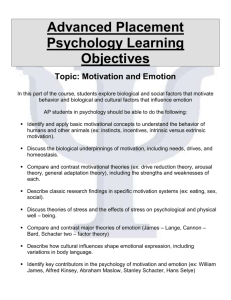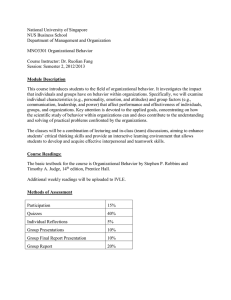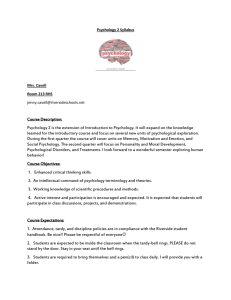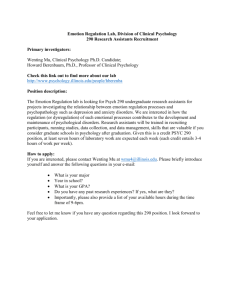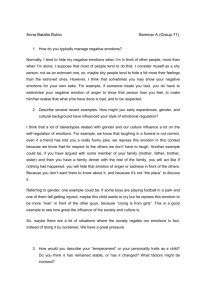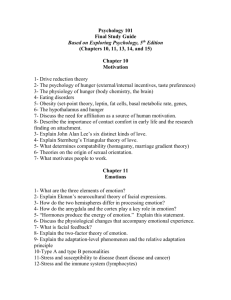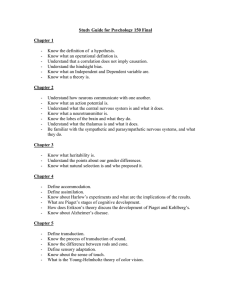Psychologisches Institut der Universität Zürich
advertisement
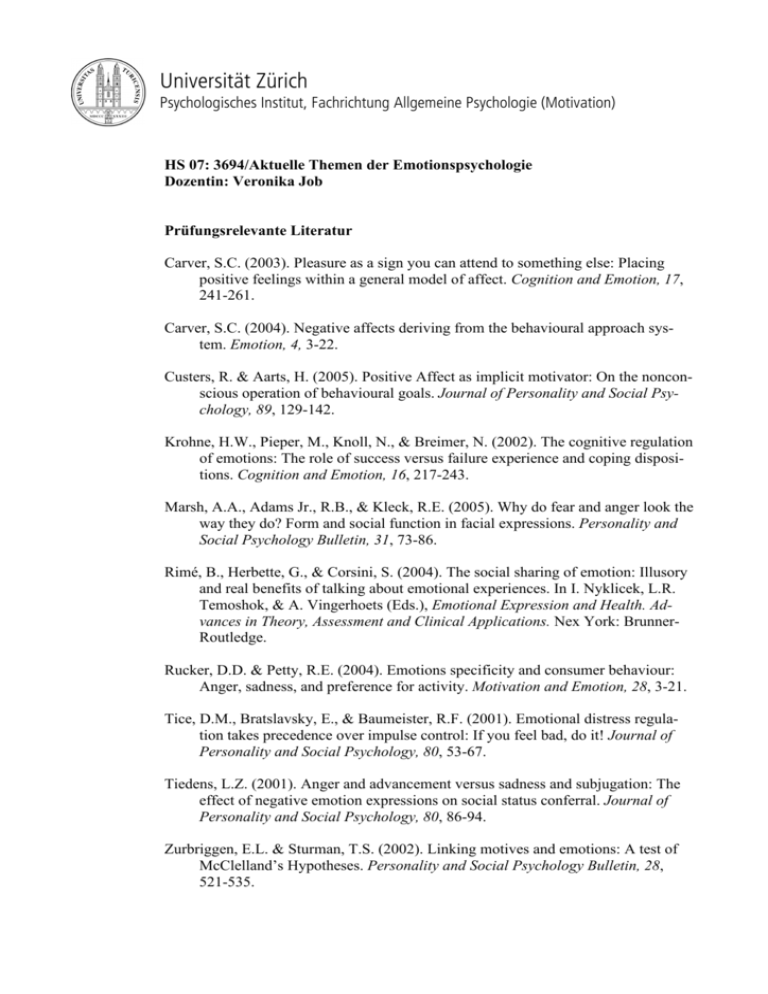
Universität Zürich Psychologisches Institut, Fachrichtung Allgemeine Psychologie (Motivation) HS 07: 3694/Aktuelle Themen der Emotionspsychologie Dozentin: Veronika Job Prüfungsrelevante Literatur Carver, S.C. (2003). Pleasure as a sign you can attend to something else: Placing positive feelings within a general model of affect. Cognition and Emotion, 17, 241-261. Carver, S.C. (2004). Negative affects deriving from the behavioural approach system. Emotion, 4, 3-22. Custers, R. & Aarts, H. (2005). Positive Affect as implicit motivator: On the nonconscious operation of behavioural goals. Journal of Personality and Social Psychology, 89, 129-142. Krohne, H.W., Pieper, M., Knoll, N., & Breimer, N. (2002). The cognitive regulation of emotions: The role of success versus failure experience and coping dispositions. Cognition and Emotion, 16, 217-243. Marsh, A.A., Adams Jr., R.B., & Kleck, R.E. (2005). Why do fear and anger look the way they do? Form and social function in facial expressions. Personality and Social Psychology Bulletin, 31, 73-86. Rimé, B., Herbette, G., & Corsini, S. (2004). The social sharing of emotion: Illusory and real benefits of talking about emotional experiences. In I. Nyklicek, L.R. Temoshok, & A. Vingerhoets (Eds.), Emotional Expression and Health. Advances in Theory, Assessment and Clinical Applications. Nex York: BrunnerRoutledge. Rucker, D.D. & Petty, R.E. (2004). Emotions specificity and consumer behaviour: Anger, sadness, and preference for activity. Motivation and Emotion, 28, 3-21. Tice, D.M., Bratslavsky, E., & Baumeister, R.F. (2001). Emotional distress regulation takes precedence over impulse control: If you feel bad, do it! Journal of Personality and Social Psychology, 80, 53-67. Tiedens, L.Z. (2001). Anger and advancement versus sadness and subjugation: The effect of negative emotion expressions on social status conferral. Journal of Personality and Social Psychology, 80, 86-94. Zurbriggen, E.L. & Sturman, T.S. (2002). Linking motives and emotions: A test of McClelland’s Hypotheses. Personality and Social Psychology Bulletin, 28, 521-535.
